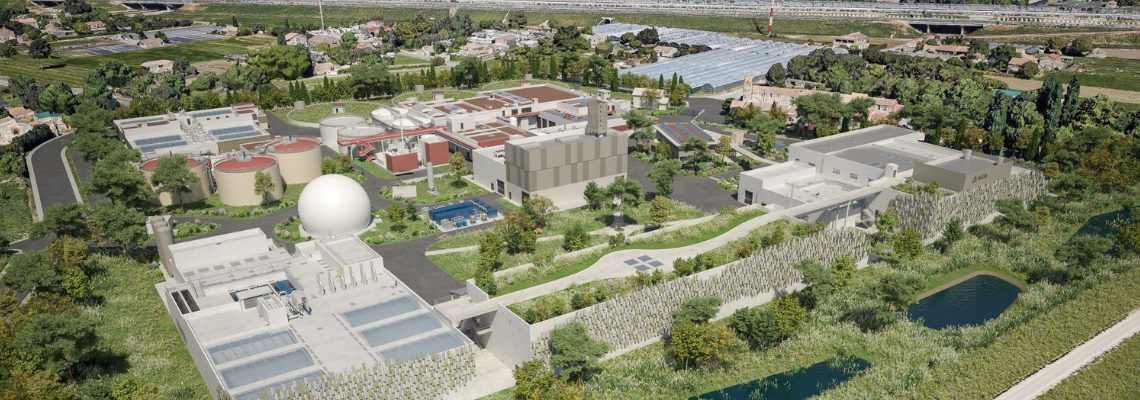Energy positive wastewater treatment: Montpellier’s Maera €165m upgrade
A €165 million upgrade will enable a wastewater treatment plant in southern France to generate twice as much energy as it consumes, as well as water for agriculture and industry.
Addressing three major planetary crises
A wastewater treatment plant in southern France is being upgraded to eventually generate twice as much energy as it consumes, as well as water for agriculture and industry.
By 2031, the Metropolis of Montpellier’s Maera wastewater treatment plant will be generating enough biomethane, heat and electricity to cover 205% of its energy consumption.
A €165 million, nine-year contract was awarded to Veolia, with its subsidiaries OTV and Veolia Eau France to undertake the extension and upgrade works as well as the operation of the Maera wastewater treatment plant.
The extension will allow us to face the future more serenely.
The upgrade also supports the Territorial Climate-Air-Energy Plan of the Montpellier Metropolis.
OTV will lead a consortium made up of Veolia Eau, Razel Bec, GTM TP GC SO, Egis Eau, Cabinet Merlin, Bouygues Energies and Services, Tourre Sanchis Architectes, AI Project, as well as many local players.
The extension works will gradually increase the plant’s treatment capacity from 470,000 to 695,000 Population Equivalent (PE), covering the needs of 19 municipalities.
Environmental performance
Excess energy produced will be used, among other things, to supply gas to 9,000 homes and heat to more than 7,500 households.
The Maera project is part of an “agroecological approach” to promote treated wastewater in agriculture. A rooftop vegetable garden and greenhouses on the ground will be created and watered by treated water from the station.
Veolia added that in addition to testing other types of uses such as fire control, cleaning of streets, public spaces and networks, and watering green spaces, vines or any other crops close to the site.
“The extension of the treatment capacity combined with the proposed improvements will allow us to face the future more serenely and to offer a structure that is better integrated with an overall strategy for limiting noise (reinforcement of acoustic devices) and odours (coverage of all structures, enhanced deodorization),” said René Revol, president of the Montpellier Méditerranée Métropole Water Authority and vice president in charge of water and sanitation.
Other notable elements include a control centre using real time data and systems, to help monitor the plant’s performance and anticipate heavy rainfall to minimise spills and manage crises.
We promise never to send you spam and you can unsubscribe at any time!
